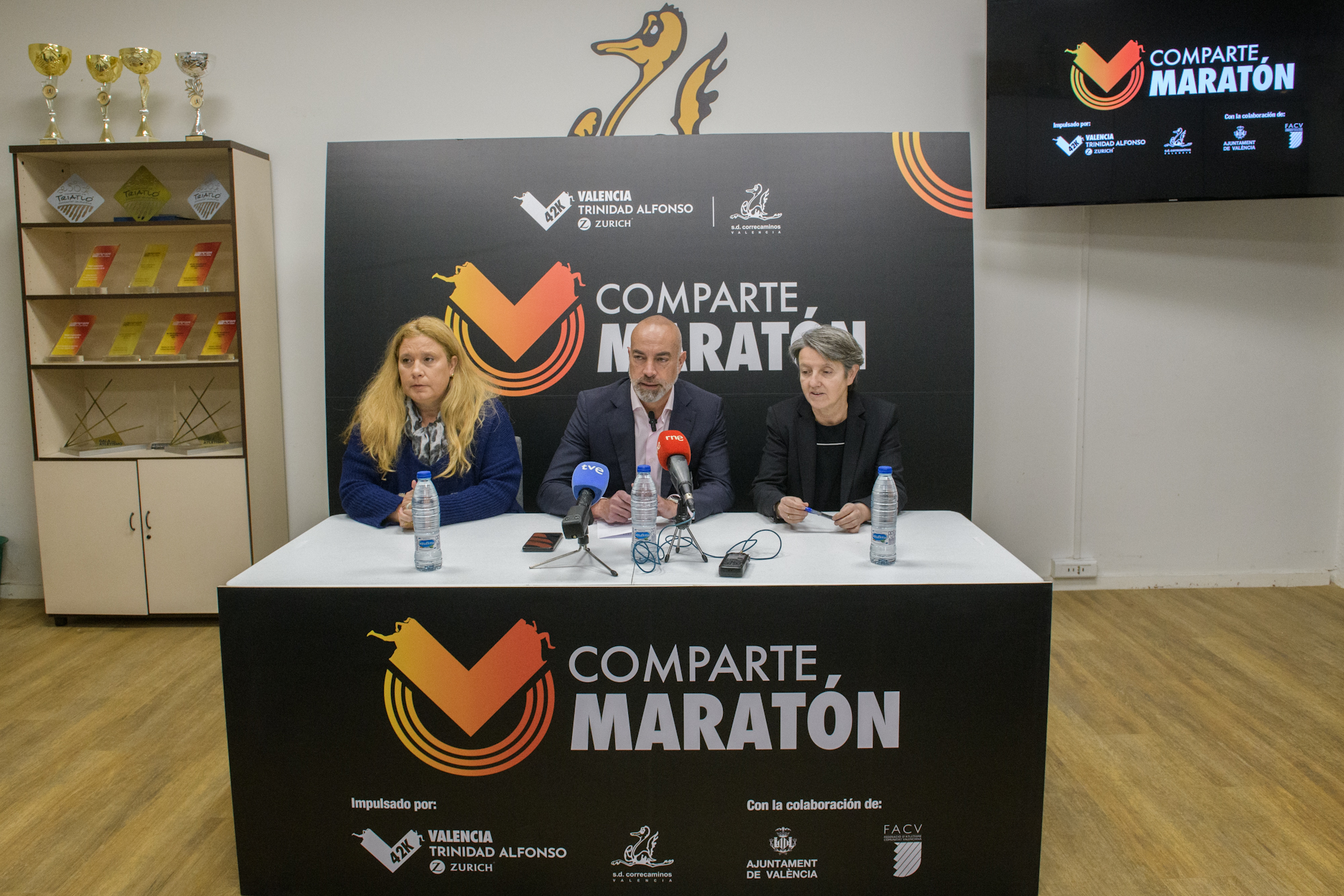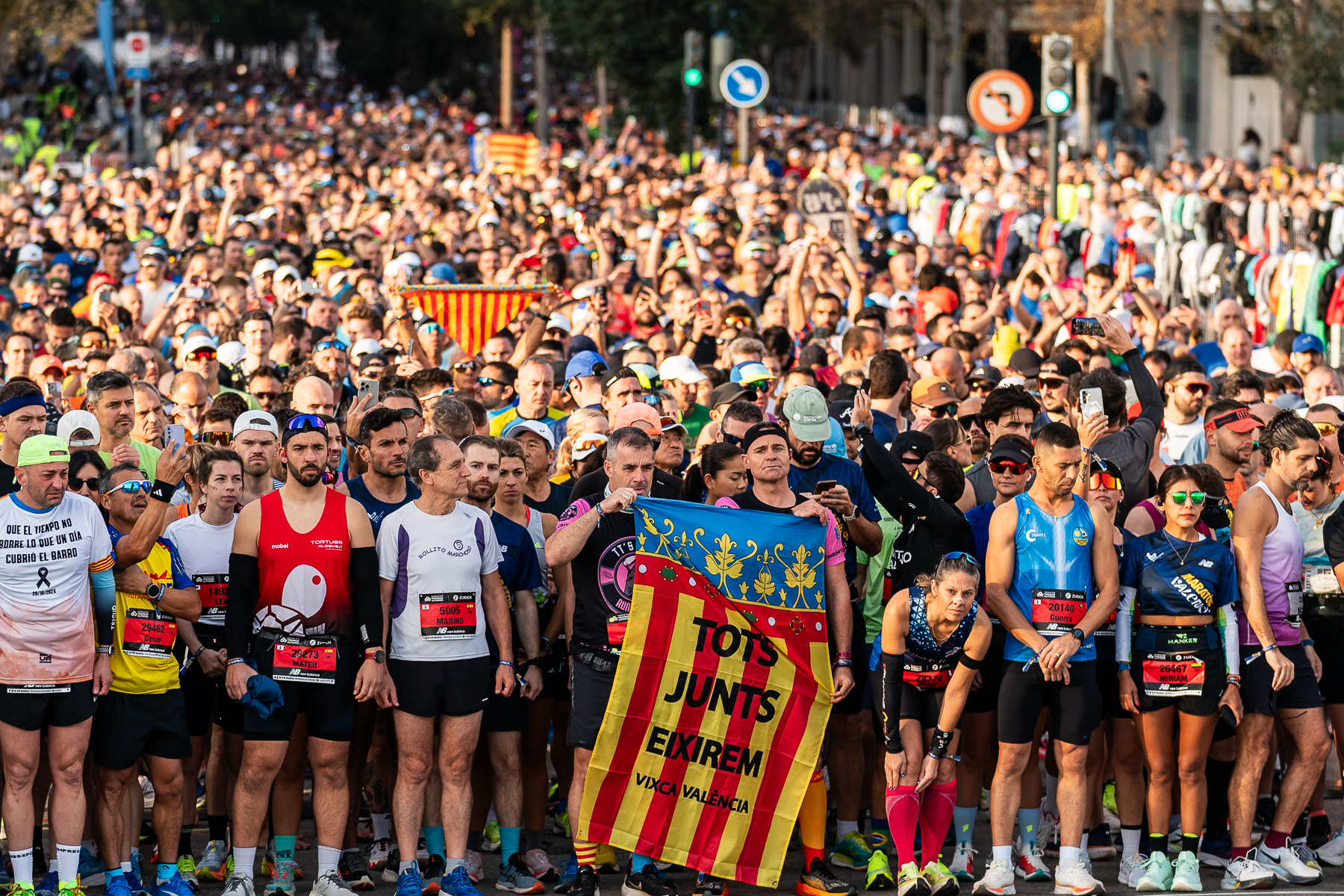Medical tips for safely completing the Valencia Marathon
There are just three months to go for the Valencia Marathon Trinidad Alfonso EDP 2018. We at the Marathon’s Medical Services strongly encourage you to continue your preparations for the trials. You should leave nothing to chance and ensure that you are in peak form come the 2nd of December.
So far, you will have run several kilometres to tone up your muscles. Now you should begin the special training for the marathon. You can find various special training routines to prepare for the marathon (on our web site ) and you should check the details there.
It is vital that you follow a plan drawn up by a professional , in which you alternate power exercises, progressive stretching and relaxation sessions to avoid injury. It goes without saying that you need to stick at it and carry out the training programmes properly. This should give you the athletic skills and the responsible mind-set you need to complete the 42,195 metres of the ‘Running City’ course safely.
Apart from training plans, we would like to give you some general tips now that you are beginning your special training for the Valencia Marathon. Follow them and the event should be a wonderful, unforgettable experience.
1.HEALTH AND SAFETY FIRST:
We want you to be in tip-top health on the day of the trials. With 3 months to go before the marathon, now is a good time to go for a medical check-up if you have not already done so. After all, you no doubt have regular medicals in your job and this is no different. To train for and run a marathon, one needs to be in perfect health. Nutritional deficiencies, anaemia, electrolyte changes and so on that would otherwise go unnoticed can all be detected through a thorough check-up. If you have never been for a medical check-up before, now is the time to visit a specialist, who will be able to advise you on the tests needed, depending on your health conditions.
If you are over 40 and have some kind of chronic health condition (hypertension, diabetes, dyslipidemia [abnormal lipid levels] and so on), you must mention to your GP that you plan to run the marathon. We recommend that you have an annual check-up to confirm that you are in good health.
2. NUTRITION THAT IS APPROPRIATE TO YOUR TRAINING:
What you eat and drink has a direct impact on your physical performance. In the 3 months before the event, you must make a special effort to ensure that your nutrition is wholly in keeping with your preparation for the trials.
- Avoid alcohol and toxic substances.
- Make breakfast your main meal.
- Follow a varied diet that basically consists of carbohydrates and proteins. Avoid saturated fats and substitute these for unsaturated fats, such as those found in olive oil and oily fish.
To sum up: Make sure you follow a healthy, balanced diet.
3. DRINK ENOUGH FROM DAY ONE:
It is a big mistake to only drink enough on the days just before the marathon. Just as we need to adjust our nutritional intake to training, so we need to do the same with water intake. The body needs time to adjust to the increase in liquid intake. Furthermore, it is important to take advantage of long runs to check our strategy for drinking liquids during the race. As we said earlier, leave absolutely nothing to chance.
4. BE RESPONSIBLE WHEN IT COMES TO TRAINING:
We cannot over-stress the fact that running a marathon needs considerable preparation. Before beginning the special training in the 3 months leading up to the trials, you must be able to run 20 kilometres at a single stretch. If you have not yet reached this point, maybe you should run the marathon at a later date when you have proved to yourself that you are fit enough to run a half marathon.
During the first week of special training, you must not raise the number of kilometres you run by over 10% of the weekly average you have run over the last few weeks.
Likewise, the rise in kilometres run between one week and the next must not exceed 10%. Remember that training is based on gradual improvements in one’s performance.
Build rest periods and rest days into your training, especially after intense training days. Over-training merely leads to injuries.
Now is also the time to thoroughly test your kit. Running shoes, shirt, gels, socks — any untested item could easily bring all your efforts to naught on the day. You have 3 months to check that everything will work properly during the marathon.
5. LISTEN TO WHAT YOUR BODY IS TRYING TO TELL YOU AND TAKE CARE OF YOURSELF:
Always: Listen to your body and stay healthy!. Make sure you do stretching sessions as part of your training for the marathon. Stretching is not only important to strengthen your legs. Simple exercises such as sit-ups and squat-thrusts strengthen your core and buttocks, thus improving your performance.
If you do not feel well or suffer any pain during these 3 months, it is important to slacken your training or even stop for a few days. if you do not get better, consult a doctor as soon as possible. Even though you may think you are wasting time, this strategy will pay dividends in the long run.
These simple tips can be summed up in two words: Common Sense. Making sure your life-style is consistent with the physical training is half the battle. Be sensible when it comes to preparing yourself for the marathon. We want to see you in top form on the 19th of November when you run in Valencia!
Luis Cort is the Medical Director of the Valencia Marathon.
Related news






